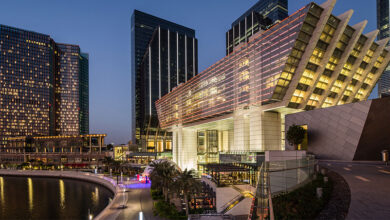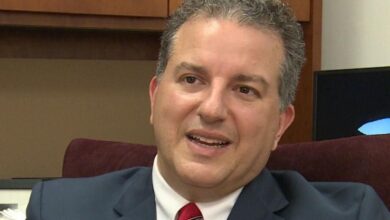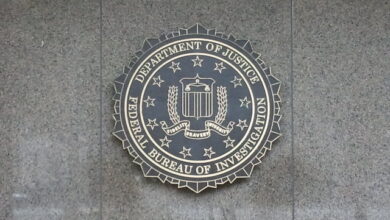IMF: Don’t Give Lebanese Government Money

This is a genuine call to IMF (International Monetary Fund) and CEDRE as well as to all investors governmental, international or individuals, to not give the Lebanese government funds, or loans based on the economic plan of this newly formed cabinet.
Why, because in all simplicity it is just word on paper, words that have been promised for over three decades, words with no mode of commitment or transparency to back it.
The word transparency although mentioned in the plan is not backed up by any tools or measures except for the mentioning of the creation of a website that will track reforms and legislation. In the day and age of digitization, blockchain, AI and so forth, a website is an antiquated concept. The government will need to do more than just build a website, it will need to open up its inner mechanism to all its investors, loaners, and constituents and the best way for that would be through digitization and a public blockchain.
In an effort to explain why IMF and others should not loan money to Lebanon’s government, it is imperative that we move through the economic plan itself.
No accountability
Lack of Accountability is paramount in the wording and heart of the plan. Yes the government succeeds to the fact that the amount of debt is overwhelming, that the government can no longer pay this debt, but it points the finger to one entity, to one sector above all else, the financial sector and as such it seeks to repatriate these funds only from that sector and its clientele. It blames the Central Bank, and all banks in Lebanon for loaning the government money over all these years, paying high interest rates to bring in the necessary foreign currency, and cover cost of debt. It blames the central bank for the 66 trillion LBP debt or losses of 63 billion USD, which went on government spending and the stabilization of Lebanese currency. But one question arises, given that the Central bank is obliged to under Lebanese law to loan the government funds, and under the fiscal policy set by government to peg the lira to the dollar, how can it then be blamed for the misappropriation of these funds.
Obviously the Lebanese government admits that money has been stolen, and that there has been corruption in the ranks and yet the biggest burden is being placed on the central bank and financial sector. Lebanese government intends to restructure and leave Lebanon with Five banking licenses. My question is this will Lebanon tomorrow blame the IMF and investors for investing in Lebanon and ask them to pay the debt incurred as they did with the EuroBond? If you cannot hold yourself accountable then how can you move forward with necessary reforms?
The government does not want to bail out the financial sector, but it is ready to bail itself out using the Lebanese banks’ capital and funds from Lebanese account holders and its diaspora. It states in its plan that if it unable to retrieve the stolen funds it will have no choice but to touch the funds in the accounts of Lebanese citizens.
The government fails to mention that with the rise of fintech, and the role that new startups are playing whether in the peer to peer payments sector, crowd funding and crowd lending areas as well as decentralized private investment platforms that banking as we know it will change. The distrust in traditional conventional banking platforms will be offset by new forms of banking in a new digital decentralized transparent globe, and the government will have no access to these funds in the future.
Already many Lebanese have turned to the purchase of cryptocurrencies to move their money out of the banking sector as well as gain access to dollars, even though it is not regulated in Lebanon, many have found ways to do this.
There has been talk about a Central Bank Digital Currency as well as laws for electronic signature, digital accreditation etc.. The Central Bank of Lebanon has discussed this and the implementation of P2P payments yet the government plan does not mention either.
Confusion on the Lebanese Lira
The plan does not seem clear on whether or not they will continue to peg the lira to the dollar at a stable rate or float it. The plan discusses a flexible exchange rate or what they call a managed float or crawling peg. It sees the Lebanese lira depreciating from 3500 lira in 2020 to 4297 in 2024. The report talks of a gradual depreciation of the currency, but the currency has already depreciated way beyond 3500 in 2020 and the Central Bank is unable to stabilize this. So does this mean that funds from IMF will be spent on stabilizing the Lebanese lira and if so, we once again fall into the abyss of not putting these funds into the real economy? As the economy free falls, more money will need to be spent to stabilize the lira, money that could be spent on building a resilient economy whose lira is based real economic value and not superficial one.
One major thing is that the plan does not even mention is Lebanon’s gold reserves, which were actually purchased by deceased President Elias Sarkis as a safety net for the Lebanese lira during the civil war. This gold was purchased in the 1980s so that future generations could use it in case Lira fell. Well today the lira has fallen and the today’s citizens are Sarkis’s future generation. The Lebanese gold reserves are worth at least 15 billion USD and if used wisely would be the best route for future generations.
Maybe Lebanese future governments will purchase stablecoin backed by gold rather than gold itself. As time changes so will investment choices for future generations. There are many examples today some in the region itself.
In reality the Lebanese government is making use of the lira depreciation as it helps the government decrease its internal debt which makes up to 70% of the debt. So is it not counterproductive to continue to pay to stabilize it at the same time.
Selling of state assets i.e. privatization
The economic plan set forth states that the government plans to place some governmental assets under a Public Asset Management Company which is quasi privatization and not a full-fledged privatization project. There is no mentioning of what state assets. Even in their discussions on telecom sector and electricity, they don’t go as far as saying they will privatize but rather they will create the regulatory bodies and boards as well as legislation needed, this is far from the measures required by IMF, or any other investor.
In the wording of the plan they mention using state assets to cover debt but also state that better managed state assets would be a solution. The plan includes a comment that says “stripping Lebanon of remaining assets would not be fair on vast majority of citizens and jeopardizes Lebanon’s ability to rebound and doesn’t solve the issue.”
Again the government doesn’t admit that it is the mismanagement of these assets, the corruption, the political incompetence that has made these assets less and less valuable to the Lebanese and not a source of strength for the state. In retrospect the government still believes it can manage state assets instead of privatizing them.
There fear stems from the calls of socialist and communist elements in society against privatization but more importantly their fear that the less government manages the less power political entities will hold. The government lacks or chooses not to envision a more innovative solution that not only appeases the socialist/communist lobbyist but also appeases the more liberal economic protagonists. In today’s age of digitization, tokenization and the concept of National Sovereign Token Offerings, based on transparent KYC/AML and decentralized mechanism of raising investment, Lebanon could actually offer tokens for both its citizens at preferential prices as well as higher priced tokens for investors from around the world. These then allocated tokens could be placed on secondary exchanges developing capital markets.
The Description of Uprising
The Economic Plan considers the uprising in Lebanon as a call by Lebanese citizens for access to their deposits, end to corruption and job creation for the youth as well as better standards of living. Yet these were not the only calls or the major call. In the beginning on October 17th uprising was against increased taxation, against the political establishment “ All means All” “Kiloun Ya3nee Kiloun”. The revolt called for the retrieval of stolen funds, for change in the current political establishment which were not mentioned by the plan. The political situation in Lebanon is a key element in the progress of the country. Calls for early elections for change and an independent judiciary body and the lack of trust in the current political establishment needs to be addressed or any plan by government will not work. Elections need to be transparent and this can be easily done with Digital Identity and Blockchain.
Taxation
The Economic plan attributes one of the reasons for dire Lebanese fiscal situation to weak tax compliance yet in its plan it states that it will not only increase taxes but it will also enhance the levy of taxes. The plan calls for increasing tariffs on electricity, businesses, income tax, on capital gains, VAT on luxury goods while keeping gasoline prices fixed at at least 25,000 LL despite the fact that Lebanese purchasing power has diminished given depreciation of Lebanese Lira and the high unemployment rate.
The plan for taxation is a hollow one because it doesn’t take into consideration Lebanese history and culture. Lebanese have never been a tax paying nation and abhor taxation. The Lebanese run away from paying anything towards government taxes, electricity, water bills etc.. A Lebanese has no qualms about paying the generator company but will try their best not to pay the government electricity bill. The government itself doesn’t even pay its own bills towards its other governmental entities. The government has failed to pay Middle East Airlines 120 million dollars, it has not paid the municipalities the money owed to them from telecom sector, it has failed to pay its own electricity bills towards itself. The economic plan also fails to see that Lebanon is not an island, that many countries around and close to Lebanon have lower taxation and as such many lebanese citizens especially the rich as well as, businesses would most probably move to surrounding countries that offer better services with lower taxation. The most notably include GCC countries, and maybe even Syria when the situation stabalizes there.
The real problem in Lebanon is not increasing taxation but rather levying of current taxes in a effective manner, and decreasing the cost of government tremendously especially given that 40% of government budget goes to pay salaries.
Digitization
As for everything else mentioned, whether it is improving the customs collection, digitization of government through egovernment initiative,electronic payments, etransaction laws, single window for customs, unified procurement, or the creation of what they call a knowledge based economy, this falls short of what government is in the 21st century and the definition of knowledge based economies in the era of digitization and virtualization.
The Lebanese government has been talking about egovernment since the 1990s, it was the first in the region to talk about it and the discussion is still ongoing.
Digitization is not piecemeal it permeates across the entire society, economy as well as government. Digitization is one of the core elements to improve cost efficiencies, the levying of government revenues as well as the development of a competative economy. Digitization today is at the core of everything and the means for true transparency through the implementation of blockchain, Artificial Intelligence, Internet of things, 3D printing and mobile applications.
The Government of the 21st century is not a manager of state assets, nor is it the provider of services, government has gone back to basics with one additional element strategy. Today Lebanon needs a government that carries out 5 basic functions, security internal and external, judiciary, legislation, regulation, and data analytics to strategize for the future, the rest can be carried out by the economy and society itself.
Healthcare in Lebanon should be Universal Healthcare which will bring in the private insurance sector and lower the cost of healthcare at the same time while providing healthcare without government intervention.
Even education does not need to be a service offered by the government, education in Lebanon has long been a private sector initiative. Instead of the government carrying the burden of education, it could request that private schools adopt a public school in return for alleviation of taxes on these schools.
Even the money that the lebanese spent on expanding embassies to reach the diaspora could have been handled efficiently with the implementation of virtual embassies like Estonia did.
In essence governmental plans of today are a result of an analysis of data gathered from digitization. The data gathered is analyzed and based on this plans are set in place for what sectors need to be created, what education needs to be encouraged and what issues need to be dealt with.
Conclusion
But all these plans mean nothing if there is no trust in government, and as noticed Lebanese have lost their trust. The best way to replace this trust is through technology, the best way to fight corruption would be through smart contracts, and the best way to track every single thing government does, pays or makes would be to use the blockchain.
So don’t give the Lebanese government money until they have proven their commitment to transparency, because it is not money that is the biggest issue nor the lack of it, the biggest issue is having the integrity, the courage, the knowledge to make the right decisions for Lebanon as a country and for its people and follow through in a trustworthy transparent manner.





